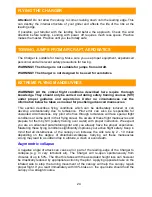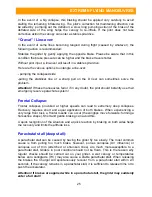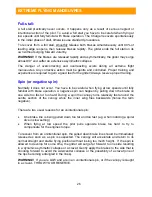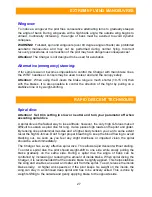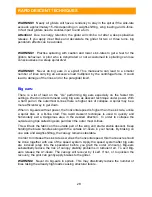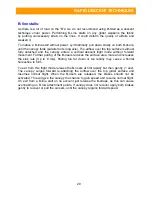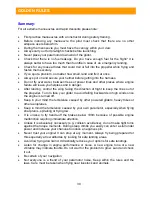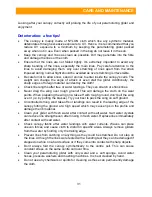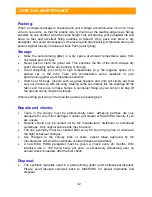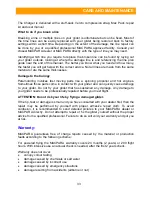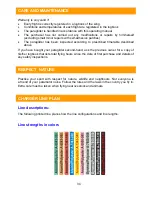
19
FLYING THE CHARGER
Wind
Trim settings
Launching technique & additional settings
under 1 (m/s)
Released for 1-2 cm.
Forward launch
- start with lines under tension
- try to minimize use of the brakes.
- correct position of the wing by moving toward in
appropriate direction rather than by using brakes
- use of full thrust when canopy at 80°
1 - 3 (m/s)
Neutral
Forward launch
- start with lines under tension
- you can use brakes to correct the position of the
wing during the run, but moving in the appropriate
direction during the run is most effective technique.
- use of full thrust when canopy at 80°
over 3 (m/s)
Neutral or closed for
1-2 cm
Reverse Launch
Flight
After take-off and applying full power the glider will be at a higher angle of attack. Some
paramotoring configurations may have a tendency to roll under full power. The torque
and gyro moments produced from different engines can lift you to one side developing a
back and forth swinging motion. This happens more often on larger engines with bigger
propellers flying with lower wing loadings. The safest way to deal with this is to throttle
back and release the brakes. Do not let go of the brakes. Novice paramotoring pilots
tend to be especially prone to overreacting.
The Charger can reach speeds of 40-43 km/h on neutral setting depending on the
weight of the pilot.
Always fly with sufficient clearance from the terrain.
With power off the Charger best glide rate is with open brakes. Flying the Charger with
minimal altitude loss can be reached by lightly applying brakes and having the trimmers
closed (pulled all the way in).
We recommend that your first flights with your Charger be done with trimmers set on or
just below the neutral setting (the white stitching mark) This is where the Charger will
feel more like a conventional paraglider wing. With this trimmer setting, try to fly with a
small amount of brake at the point where they just begin to feel heavier.
Summary of Contents for CHARGER
Page 1: ...1 ...
Page 10: ...10 TRIMMING ...
Page 35: ...35 LINE PLAN SCHEME ...
Page 38: ...38 ...
Page 40: ...40 ...




















